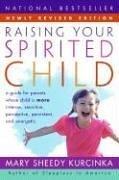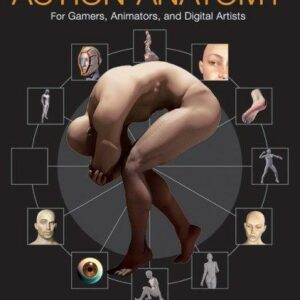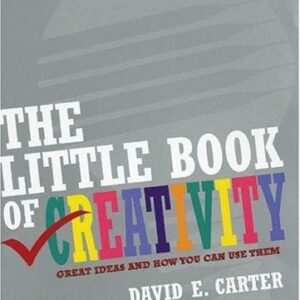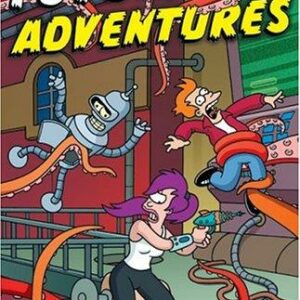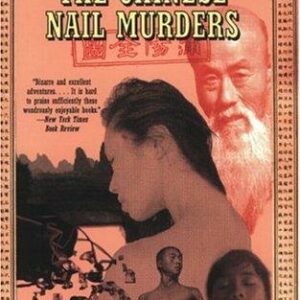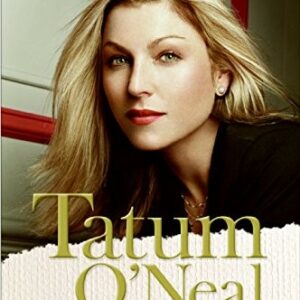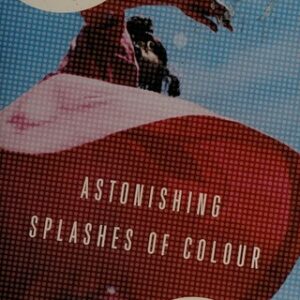Horse Barbie
$28.00
| Title | Range | Discount |
|---|---|---|
| Trade Discount | 5 + | 25% |
- Description
- Additional information
Description
“A moving chronicle of trans resilience and joy” (Vogue) from one of Out100’s Most Impactful and Influential LGBTQ+ Storytellers
“Groundbreaking . . . [Rocero] quite literally models what triumph can look like.”—Glamour (Women of the Year)
WINNER OF THEM’S AWARD FOR LITERATURE • A BEST BOOK OF THE YEAR: Book Riot, Elle, Esquire
As a young femme in 1990s Manila, Geena Rocero heard, “Bakla, bakla!,” a taunt aimed at her feminine sway, whenever she left the tiny universe of her eskinita. Eventually, she found her place in trans pageants, the Philippines’ informal national sport. When her competitors mocked her as a “horse Barbie” due to her statuesque physique, tumbling hair, long neck, and dark skin, she leaned into the epithet. By seventeen, she was the Philippines’ highest-earning trans pageant queen.
A year later, Geena moved to the United States where she could change her name and gender marker on her documents. But legal recognition didn’t mean safety. In order to survive, Geena went stealth and hid her trans identity, gaining one type of freedom at the expense of another. For a while, it worked. She became an in-demand model. But as her star rose, her sense of self eroded. She craved acceptance as her authentic self yet had to remain vigilant in order to protect her dream career. The high-stakes double life finally forced Geena to decide herself if she wanted to reclaim the power of Horse Barbie once and for all: radiant, head held high, and unabashedly herself.
A dazzling testimony from an icon who sits at the center of transgender history and activism, Horse Barbie is a celebratory and universal story of survival, love, and pure joy.“Inherently American . . . Geena Rocero’s enthralling, redemptive, and heartfelt journey forces me to see the world through newly bright and hopeful eyes.”—America Ferrera, Emmy-winning actor and producer, and author of American Like Me
“Interspersed with vivid, captivating, and often hilarious behind-the-scenes stories about the pursuit of fame—on music-video sets, gaining entry into exclusive clubs and parties—Horse Barbie recounts Rocero’s painful decision to hide her trans identity as she pursued a modeling career in New York, and her empowering journey toward reclaiming her true self.”—Vulture
“Candid . . . Rocero [is] no longer hiding. Her memoir does not shy away from topics like colorism, gender disclosure, sex work and the nuts and bolts of medical transition.”—The New York Times
“Rocero writes with openness and humor.”—Vanity Fair
“Rocero’s tender recollections . . . exemplify the creative loopholes that trans people always find to live our lives. We find them because we’ve always had to find them. . . . But persistently, Rocero nurtures sisterhood and solidarity to create not only safety but love and care. . . . Horse Barbie joins a constellation of recent stories told by queer people and especially trans women navigating the world with vigor and style.”—Datebook
“[Rocero’s] story is a reminder of the importance of living authentically and being true to oneself, despite the obstacles that may arise. Her memoir is sure to inspire readers to embrace their unique identities and stand up for what they believe in, no matter the cost.”—Galore
“Vivid, hilarious, exhilarating . . . thrillingly perceptive and honest.”—Jia Tolentino, author of Trick Mirror
“A propulsive read, animated by the author’s honesty, wit, and indomitable spirit of self-acceptance.”—Ronan Farrow, journalist and author of the Pulitzer Prize–winning Catch and Kill
“Powerfully introspective and wildly entertaining.”—Bowen Yang, actor and comedian
“A groundbreaking book befitting a groundbreaking icon . . . In these chaotic, uncaring, incoherent times, this memoir shines as a beacon of courage and empathy.”—Jose Antonio Vargas, Pulitzer Prize–winning journalist and author of Dear America
“Witty, heartbreaking, and vivid, Horse Barbie is a must-read for anyone looking to know more about self-acceptance in the face of profound struggle, what it means to be trans, and Geena’s outstanding impact as a groundbreaking advocate, model, writer, and inspiring woman.”—Sarah Kate Ellis, President & CEO of GLAAD
“Horse Barbie is an emotionally engaging read. Rocero’s pride in her success as both a fashion model and a highly visible trans woman of color is hard won, and having the chance to read about it feels like a privilege.”—BookPage (starred review)Born and raised in the Philippines, Geena Rocero is an award-winning producer, director, model, public speaker, trans rights advocate, and television host, and was named one of Gold House’s 2020 #A100 most impactful Asians and Pacific Islanders. Her directorial debut Caretakers (PBS), a docuseries about Filipinos in care work, received four Emmy nominations.1
Sun Kid
I learned how to be trans in the Catholic Church.
When I was ten years old, before I ever entered pageants, I was in the children’s choir at Our Lady of Guadalupe Parish Church in Makati. As we stood on a three-tier set of wooden choral risers, crammed up against the wall, our voices reverberated, bouncing off the marble floors, reaching every crevice of the gently arched ceiling sixty feet over our heads, filling the space with sound.
Still, when I knelt with my eyes shut to make the sign of the cross, I could hear the motorized tricycles whizzing by outside, and the distinct sizzle of ripe saba bananas, coated in brown sugar, deep-frying at vendor stands, their caramelized aroma wafting in through the open door.
The lives of everyone in our neighborhood revolved around the church. Good kids participated in the services. Trustworthy kids got to collect donations, holding out red-velvet baskets as they walked among the pews. The altar boys displayed an almost otherworldly level of devotion; they didn’t walk, they floated alongside the priest, their floor-length white dresses brushing against the floor, steady little hands clutching bronze communion cups and tapered candles.
The position I aimed for in that hierarchy of holiness was the choir. People who sang in church were special, and I wanted to be special. At first the choir director tried to keep me out because he didn’t think my voice was good enough. But most of my friends were in choir, so I showed up to practice anyway, week after week. Eventually, the director felt bad for me, and so I earned my spot on the risers.
Well, on the bottom corner of the risers. Everyone’s got to start somewhere, right?
One Sunday, the director picked me to “hand interpret” the opening song mere minutes before the four p.m. mass was scheduled to start.
Traditionally, a child would stand in front of the altar, gesturing in sync with the lyrics, interpreting them to add another layer of pageantry to the proceedings, performing for hundreds of churchgoers as they filed to their seats. Usually children from rosary study group were selected for this honor, most often girls, very rarely boys.
I wanted to make the most of my big moment. As I slowly walked toward the front of the altar, I looked out at the incoming titas, the kids held tight by their mamas, and at all the lolos and lolas minding their own pace but still laser-focused on securing their seats. They played it cool, but God help anyone who tried to take their pew.
As I took my place on the second marble step in the center aisle, I felt each sensation acutely: The crispness of my pale pink short-sleeve shirt, freshly ironed, brushing against my skin. The scratchy fabric of my high-waisted navy cotton pants, reminding me to stand up straight. As I looked out over the congregation, their faces shrouded by the abaniko hand fans they were waving to keep cool, I felt dizzy. They looked like they were animated in stop-motion, my anxiety blurring their faces together.
But as I heard the first notes of the opening song and began to interpret them, I started to feel more at home. The gentle movements were familiar. At home, I liked to mimic the powerfully feminine hand gestures my mother made whenever she conducted the national anthem at my school, where she worked as a teacher. Now I was imitating her in front of an entire congregation. As I swept my hands in front of me, I sang, “Santo, Santo, Santo, Diyos makapangyarihan. Puspos ng luwalhati Ang langit at lupa.”
The choir behind me swelled at the Hosanna chorus, “Osana, Osana. Sa kaitaasan.”
As we sang those three words, I spread my arms, mirroring the body of Christ on the crucifix behind me. I felt like His power was flowing through me.
But the way I flicked my fingers, slowly unfurling each of them in turn as I stretched my arms out to their full extension—the gentleness of that gesture was all me. My motions were soft but regal, almost grandiose and yet filled with the innocence of a child honoring the Lord. My hands met in prayer. The choir sang again, “Osana, Osana.”
As they repeated their supplication, the words seemed to me, for the first time, to mean something else, too, their reverence for Christ expanding to an affirmation of my own budding identity: I am a child, I am Catholic, and I am femme.
Walking out of Our Lady of Guadalupe that day, my friends and I inhaled the sweet, tropical jasmine scent wafting from the fresh sampaguita and ylang-ylang flower vendors right outside. The vendors sold necklaces made from the blossoms, dipping them in colorful buckets of water so that they would still be fresh when we offered them to our statues at home. Holding hands together in a row, the other kids and I spanned the width of the street, following the smell of delicious, freshly baked pan de coco with creamy shredded coconut filling.
The church might have been my sanctuary, the place where I strived to be holy and pure. But these Makati streets were home.
I was born and raised in an eskinita, a six-foot-wide alleyway connecting two parallel thoroughfares. To the north was Dapitan Street, named after the remote missionary town on Mindanao Island where Filipino national hero José Rizal was exiled for four years, from 1892 to 1896.
While imprisoned on Dapitan for publishing books criticizing our Spanish colonizers, Rizal wrote poetry. In my own Dapitan, I learned how to kembot, a feminine way of walking in which you sway your hips while you move. I was fantastic at it—but practicing it put a mark on my back.
“Oh, that boy who kembot,” people would taunt me as I walked down the street, my hips swinging side to side.
To the south was Kalayaan Avenue, which means “freedom.” On Kalayaan, you could catch a jeepney to buy groceries in the palengke near the EDSA, a congested highway that was also the site of our revolution in 1986, which toppled the brutal dictatorship of President Ferdinand Marcos.
And there, sandwiched between Dapitan and Kalayaan, between heroism and freedom, was my little eskinita. “The shortcut,” my neighbors called it, because unless you lived there, you spent less than a minute walking through it, eyes pointed straight ahead. But for me and the other kids, it was an entire universe. We filled our days playing Chinese garter and a Filipino version of tag—Langit, Lupa, Impyerno, or Heaven, Earth, Hell. Even our games were Catholic. I was known as the one who always played outside: batang araw, the “sun kid”—a reference to my dark, tanned skin from all the time I spent playing outside.
The fun didn’t stop when it rained. Showers at my house meant dipping a tabo into a timba and rinsing off one pour at a time. So during the frequent storms between May and October, the neighbor kids and I loved to run under the gushing outflow from a leaky gutter in the alleyway and pretend like we were in a luxurious waterfall shower at a five-star hotel. For a moment, our eskinita could have been the Ritz-Carlton. We’d all line up to wait our turn for a shower. But nobody wanted to stand under the water too early, because it would still have dried-up cat shit in it. I learned that lesson the hard way.
Picture the sublevel house in the movie Parasite, a step down from street level with a cement floor; that was my home. When I walked in through the bright blue front door, my feet would often splash into a puddle before I’d catch a big whiff of diluted Clorox oozing from the linoleum, soon to be overtaken by the aroma of garlic fried rice cooking on the stove.
It was usually Papa making food, pushing back his tousled shaggy black hair as he minded the stove. He had a dark brown complexion and a commanding stare, bordering on cocky, that always made it seem like he knew something you didn’t.
Papa was a complicated man. During the day, while Mama worked, he took care of us with the utmost tenderness, cleaning the house and handwashing our clothes. There was a rhythm to his homemaking. The sound of soapy bubbles escaping the friction between fabric and fist was our soothing afternoon soundtrack. But once night fell, he would drink rum—sometimes alone, sometimes with his buddies—and become a towering, rageful presence. His shouting rang out into the night; we tried our best to sleep through it.
What seemed contradictory, like Jekyll turning into Hyde, was the predictable result of wounded masculinity. Even at a young age, I could tell his ego was bruised a little more with every reminder he wasn’t the breadwinner, every time he had to ask Mama for money to buy groceries.US
Additional information
| Weight | 18.8 oz |
|---|---|
| Dimensions | 1.1700 × 6.3600 × 9.5300 in |
| Imprint | |
| Format | |
| ISBN-13 | |
| ISBN-10 | |
| Author | |
| Audience | |
| BISAC | |
| Subjects | lgbtq books, gender identity, philippines, model, horse, memoirs, books for women, book club recommendations, Asian American, BIO002020, aapi, lgbt books, gifts for women, biographies and memoirs, colorism, Barbie, fashion model, a horse barbie book, horse barbie books, horse barbie book, Horse Barbie, beauty pageant, Geena Rocero, social justice, feminism, racism, immigration, horses, BIO022000, queer, LGBTQ, sexuality, self love, relationships, feminist, Memoir, survival, gender, coming of age, resilience, activism, pride, identity, beauty, transgender |


